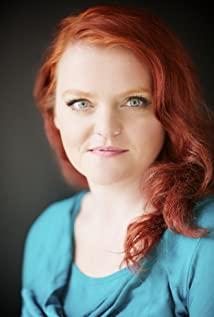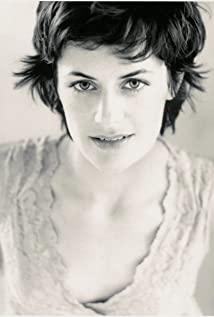I specially went to make up for the original French version of "The Belliers", and then determined that this film belongs to the soul adaptation.
What the US version does best is that it discusses the setting of "the only hearing daughter of a deaf-mute family" from both sides more fully than the original. On the heroine's side, the remake changes her family occupation and personality. The former was changed from a farmer to a more strictly regulated fishing in order to further emphasize the family's dependence on her and her indispensable position in the family, while the latter was changed from carefree to sensitive and inferior to show the family's negative attitude towards her Influence. The switch between being alone and being insignificant constitutes the biggest conflict in this role.
More importantly, the American version has added another brand-new angle besides the heroine-the elder brother's view (changing the younger brother to the elder brother is really a stroke of genius). Taking the words of the elder brother to suggest that this kind of dependence will actually become an obstacle for them to adapt to the environment, which is not only an important supplement to analyze this special family relationship, but also echoes the parental protection of the heroine like a bond at the moment.
In fact, the key plots of the remake version basically come from the original version, but it is precisely because of the above-mentioned more angles and deeper exploration and discussion that the remake version can easily make different interpretations and extensions in the same plot, and finally, in the The refinement of the theme, the grasp of details and the degree of completion have all shown a crushing trend.
Taking the plot of pursuing a musical dream as an example, the biggest contradiction in the original version is that the parents do not want their precious daughter to lose their protection away from home, and the daughter's main entanglement is not that the family needs her. This is because the previous film did not focus too much on the relationship of "dependence", so the final song also sang "Dear parents, I want to leave, I love you as before, but I will leave." You will find that even if the setting of the deaf-mute family is removed here, it will not affect the development of the film at all. The remake builds up a more complex and tangled relationship and emotion based on the same plot, and answers to the audience why it is difficult for the two sides to part ways.
Moreover, the two key songs of the US version are really well chosen! ! If the Oscars had an award for Best Interlude Selection and Performance, I wouldn't hesitate to vote for this film.
"You're All I Need To Get By" is mainly sung three times in the whole film: the first time is the unconscious revealing and mutual testing of affection between boys and girls during rehearsal; This is really more than the original version, which can make the audience feel what it means to shred the beauty, and instantly throw the audience into a cruel situation where they have to feel the same; the third acapella completely changed an angle, turning the love song into a hit A song of affection that is destined to be inseparable. When the father asked "what kind of song is this", the original answer was "about the love of a man and a woman", while this film is "this is a song about how a person needs another person", really It's too awesome.
"Both Sides Now": It's really the best summary of the whole film. When you hear each lyric, you can see the bits and pieces in front of the film. This is completely impossible without sufficient foreshadowing. And it was originally just a song that had nothing to do with the film. Here is a great detail. The heroine started to use sign language after singing "But clouds got in my way", which is not only a natural expression of love, but also the best expression of her mood changes.
Of course, the original also has a lot to offer. The central plot of a deaf-mute daughter pursuing her musical dreams sounds cliché at first, but it captures the irony behind it keenly, pointing out that music is the most incomprehensible thing this family has ever seen in the world, and in one of the cruelest ways Let the audience intuitively experience the mood of the heroine's family, and finally let them feel the power of music and the mood of their daughter in the most moving way. These several plot designs are the essential raw materials for the remake to revive its vitality.
View more about CODA reviews











